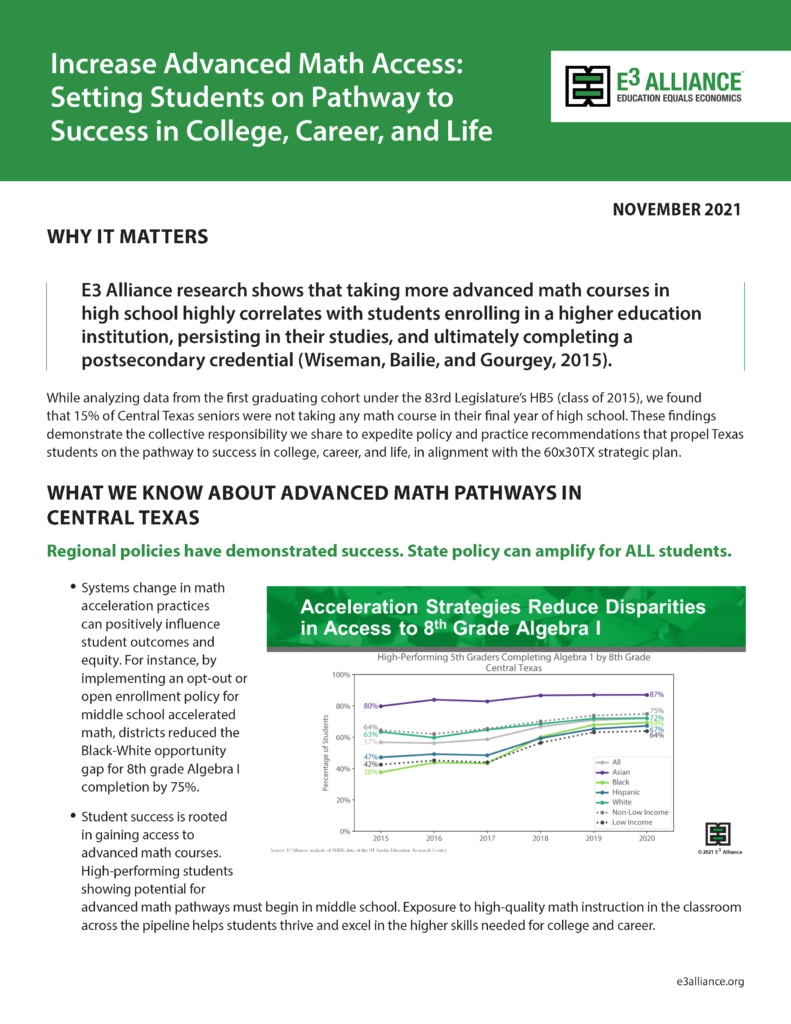If your school is currently piloting or offering E3 Math next year
Anonymous
... as opposed to right now, when students can get accelerated starting from 3rd grade. At least, from some place other than Kumon/AoPS/stable educated parents. Sucks to be smart and poor or have a chaotic home life. |
Anonymous
| At our LLIV orientation, the AART made it sound like the E3 math at our school (who had piloted it for the last year or two, I think) was going away. |
Anonymous
This is great news and a step toward restoring sanity to public education in Fairfax county. |
Anonymous
May I ask which elementary this is? |
Anonymous
Your reply tells me you never had a kid in K-2 that was above the standard pace of the class - largely on computers or solo reading, rarely meeting with the teacher in small groups. Those of us that did have those kids KNOW that “AAP for all!” Means basically shifting back to that K-2 model of kids of all abilities in the same class which means of course it will move slower. It will be super rare for a parent to opt their kid out of the default track onto a Lower one. |
Anonymous
Some schools began the E3 pilot in 2021-22; those third graders would now be in 5th. What Math SOL are those kids taking in 5th grade -- Math 5 SOL or Math 6 SOL? |
Anonymous
That is NOT what E3 advocates for. They want more kids in accelerated tracks. And it has nothing to do with SF. Stop spreading misinformation. |
Anonymous
|
https://e3alliance.org/2022/08/29/call-for-advanced-math-policy-during-texas-88th-legislature/
"E3 Alliance research indicates that taking more advanced math courses in high school highly correlates with students enrolling in a higher education institution, persisting in their studies, and ultimately completing a postsecondary credential" "we believe the time is now to amplify all students across the state, scaling these tested and refined practices into state policy during the upcoming Texas 88th Legislative Session." "Our state-level policy priorities include: *Opt-Out Policy for high-performing students enrolling in accelerated math starting in 6th grade. *Math All Four Years for high school students." 
|
Anonymous
Stop making up BS stories in an election year. E3 doesn’t mean eliminating accelerated paths. “*Opt-Out Policy for high-performing students enrolling in accelerated math starting in 6th grade.” |
Anonymous
Agree completely. E3 is another terrible equity-driven idea which will ultimately hurt every student, including those it claims to want to help. FCPS needs to dump E3 entirely. |
Anonymous
E3 waters down math instruction by placing students in heterogeneous math classes in 3rd and 4th grade. Students at both ends of the achievement spectrum suffer as even good teachers can't differentiate in heterogeneous classes as well as teachers can in classrooms matched to student needs. Heterogeneous classes were the backbone of San Francisco's math reform. |
Anonymous
Now, if you’re posting in good faith, please share the key differences between the SF math and E3. |
Anonymous
E3 mirrors VMPI which originally advocated for heterogeneous classes through 10th grade. VMPI was ended but E3 is a way to enact VMPI's ideas piecemeal at the district level nonetheless. |
Anonymous
| Can anyone with a kid in 5th grade advanced math at an E3 school confirm whether their kid took the 6th grade Math SOL? |
Anonymous
VRES. She made it sound like while it was officially going away, it might be merged in somewhat to the regular curriculum? I wasn't clear exactly what E3 entailed or what parts exactly might be sticking around, but it sounded like at a minimum it wasn't sticking around as-is. |
